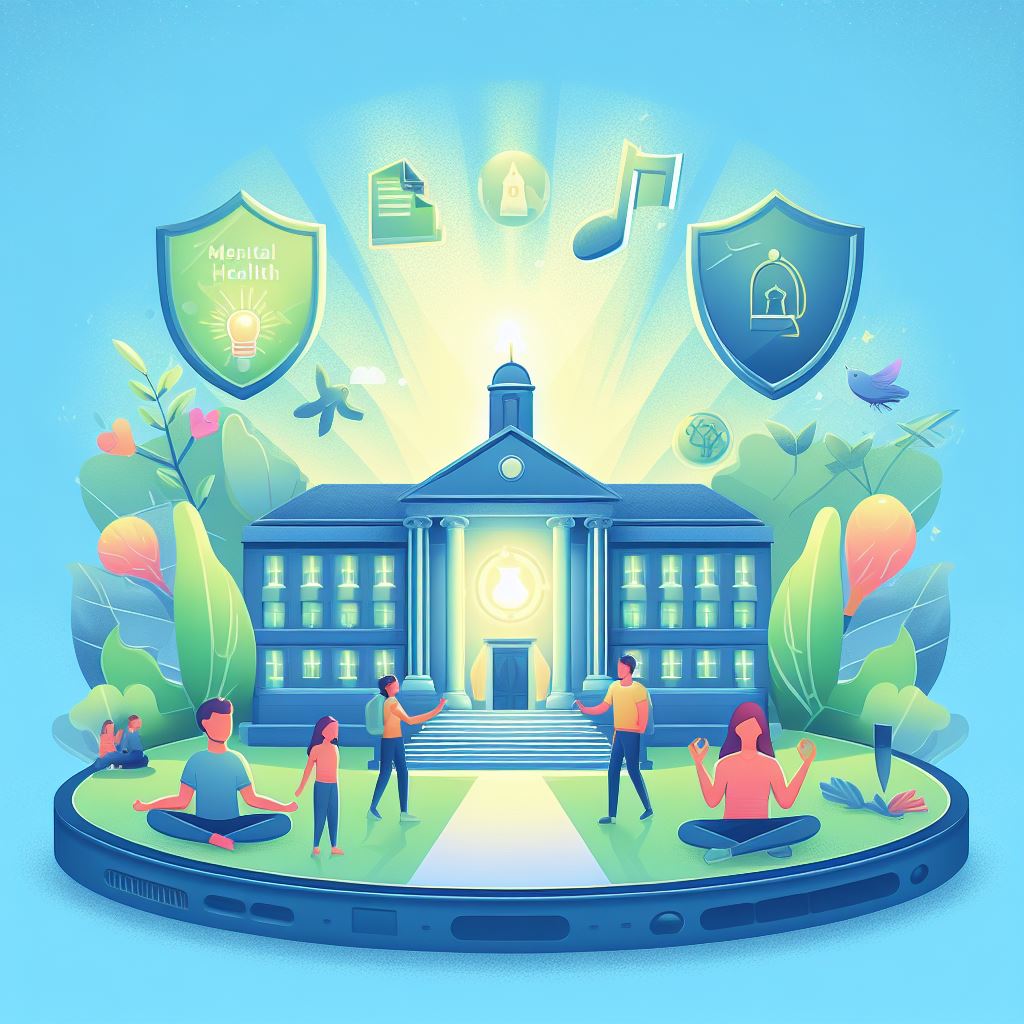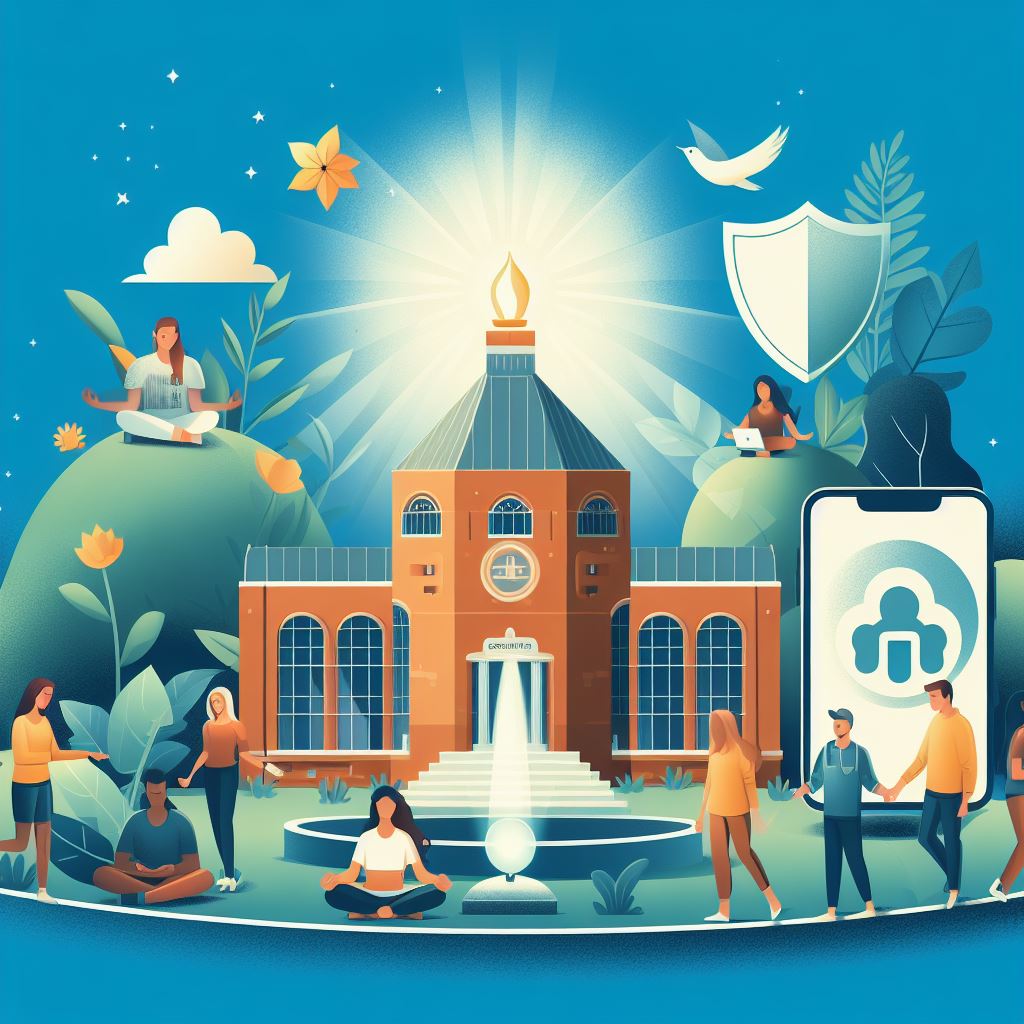
Essential Mental Health Resources for Students
The life of a student, while filled with the vigor of youth and the excitement of new beginnings, can also be fraught with academic stress, peer pressure, and anxiety. At such times, the need for a well-defined guide to accessible mental health resources becomes essential. Catering to the same, this article provides a comprehensive list of mental health tools tailored especially for students, ensuring their mental wellness remains a top priority.
Understanding the Importance of Student Mental Health
Student mental health is a crucial component of overall student well-being. With the rising academic pressure, students often find themselves at the crossroads of academic stress and personal growth.
Did you know? A study showcased that more than 60% of students have experienced overwhelming anxiety during their college life, underscoring the need for psychological support.
Comprehensive List of Mental Health Resources for Students
-
College Counseling Services:
- Benefits: Offers a safe space, providing professional guidance tailored for student needs.
- Availability: Often free for enrolled students. Accessible through college administrative channels.
- Testimonials: "My college counseling sessions helped me navigate through a tough semester. It was an anchor in stormy times." - Alex, 21
-
Mental Health Apps:
- Benefits: Instant access to guided sessions, reminders, and peer stories.
- Availability: Both free and premium versions available on app stores.
- Testimonials: "The mental health app I downloaded was like having a therapist in my pocket!" - Riya, 19
-
Local Community Groups:
- Benefits: Provides a sense of community, belongingness, and shared experiences.
- Availability: Mostly free. Often organized by local NGOs or college groups.
- Testimonials: "Joining a student support group helped me find friends who understood my struggles." - Liam, 22
How to Cope with Academic Stress and Anxiety
- Routine Development: Establish a daily routine to ensure a balanced lifestyle, incorporating study breaks, physical activity, and relaxation.
- Limit Social Media: Decreasing screen time can significantly reduce anxiety stemming from comparisons and information overload.
- Seek Support: Talking to friends, family, or academic counselors can provide a fresh perspective and necessary support.
- Meditation and Mindfulness: Engage in mindfulness practices to stay grounded. Several mental wellness apps offer guided sessions for the same.
Recognizing the Need for Support
It's pivotal to recognize and acknowledge when you or someone you know might need help. Some indicators include:
- Prolonged feelings of sadness or hopelessness.
- Consistent fatigue or lack of motivation.
- Drastic changes in eating or sleeping patterns.
- Avoidance of social interactions or activities once enjoyed.
Case Study:
Emma, a 20-year-old college student, initially dismissed her feelings of exhaustion and disillusionment as mere academic pressure relief. It was her roommate who noticed the signs and encouraged her to seek counseling. Today, Emma is an advocate for student mental health resources and credits her early intervention as a life-saving decision.
In Conclusion: The Path Ahead
Taking care of your mental health is not a sign of weakness but one of strength and self-awareness. As the saying goes, "It's okay not to be okay, but it's essential to seek help when you're not." Colleges, educators, and guardians must work together, ensuring that every student has access to the resources they need. Remember, a sound mind paves the way for a promising future.
To Students: This journey might be challenging, but with the right resources and support, you are bound to overcome. Stay informed, stay supported.
To the Support Network: Stay vigilant. Recognize the signs, and guide students towards the help they might be hesitant to seek. Your role is pivotal in shaping a student's academic journey, making it as mentally fulfilling as it is academically.
For more detailed resources, suggestions, and one-on-one guidance, connect with your local college counseling centers or explore the myriad of mental health apps available online.
The Beacon of Hope on CampusOn the sprawling campus of Hope University, nestled between the aged oak trees and bustling lecture halls, stood the Beacon Counseling Center. Its name was no accident – it was a light for many students who felt lost in the tumultuous sea of academic life. Anna, a second-year student, was always seen with a bright smile and an armload of books. But behind those gleaming eyes lay a storm of anxiety and doubt. The weight of academic stress bore down on her, pulling her into an abyss of sleepless nights and relentless worries. One day, as Anna sat on a bench overlooking the serene college garden, she noticed a group of students in the distance. They sat in a circle, taking deep breaths, their faces calm and focused. Curiosity piqued, Anna approached them. They introduced her to a mental health app that offered meditation and mindfulness exercises. As the weeks went by, Anna took solace in these practices, finding moments of peace amidst her hectic schedule. However, the journey wasn't just about self-help. One afternoon, she mustered the courage to visit the Beacon Counseling Center. There, she met other students like Liam, who found comfort in local community groups, and Riya, who swore by the mental health apps she'd discovered. Their stories of struggle and eventual triumph echoed Anna's feelings, making her realize she wasn't alone. Inspired by these interactions, Anna, Liam, and Riya formed a student-led initiative to raise awareness about the myriad of mental health resources available on and off campus. They organized workshops, group therapy sessions, and even had spaces for students to simply talk, vent, or share. Their efforts didn't go unnoticed. Emma, a bright-eyed fresher, attended one of their sessions. She later confessed to Anna how it changed her life. She'd been spiraling, feeling overwhelmed by the sudden changes college brought, but the session was her lifeline, her beacon. The story of Hope University is a testament to the strength of community and the power of recognizing when to seek help. While the waves of academic life can be daunting, there are always lifelines available, waiting to guide students back to shore. Sometimes, all one needs is a beacon to light the way. |





